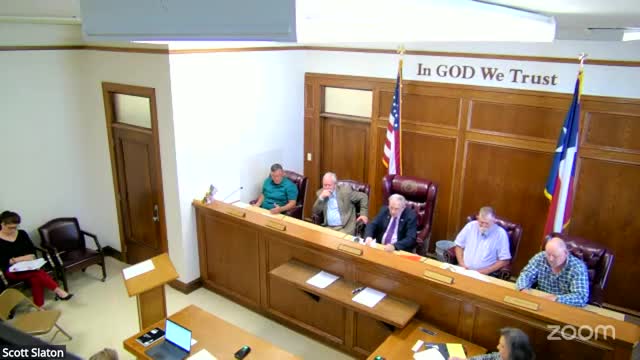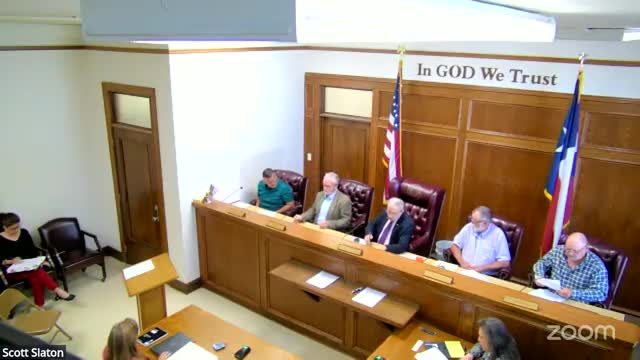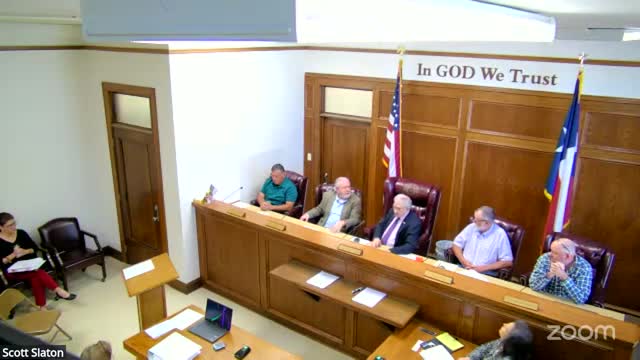Article not found
This article is no longer available. But don't worry—we've gathered other articles that discuss the same topic.

Commissioners cite heavy commercial trash trucks as damaging county roads; options include county-run service or contracts

Van Zandt commissioners weigh limits on outgoing commissioners' spending, cite Local Government Code

